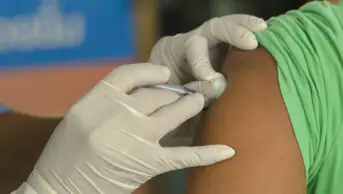
Nadia Attura
When you go to an event it can be easy to stay in your comfort zone and only speak to people you know. Although it is important to keep up with existing contacts, friends and colleagues, it is also useful to meet new people — particularly if you are looking for someone to collaborate with, want to share best practice or are looking for a new job.
“Networking has opened up opportunities to work collaboratively to provide education events both nationally and within my region,” explains Emma Anderson, Centre for Pharmacy Postgraduate Education (CPPE) tutor, East Midlands region, and CPPE national preregistration tutor lead. “It has also opened the door to undertake work developing patient group directions for two local councils — which has provided key evidence for my Royal Pharmaceutical Society Faculty application.”
Choose your event
Although you could probably find a different event to attend each week, an indiscriminate approach to networking is not going to be of benefit, according to David Preece, pharmacist at Leeds Teaching Hospitals NHS Trust. “Events you attend should be relevant to your field, practical so that you can attend, and also interesting to your future work,” he says. “At a conference you might choose to attend sessions based on great speakers, because you think you would like to meet someone in the audience or because you want to learn more about the topic.”
With time at a premium, Anderson advises that networking “needs to be strategic” and suggests liaising with other team members “so that between you key events are covered” and you can “share useful contacts with the rest of your team”.
Prepare carefully
If you are going to a conference to network then it is vital that you prepare beforehand. “Think about your objective — do you want to network generally or meet specific people?” asks Nina Barnett, consultant pharmacist at NHS Specialist Pharmacy Service and London North West Healthcare NHS Trust. “Get the conference brochure and decide which talks and events you want to go to, and look at the delegates attending to find out who might be where and when you could go and talk to them.”
When you arrive at the conference, Barnett suggests you get a map and familiarise yourself with the layout of the exhibition space and the refreshments area. “Usually at the beginning of any conference you will have the introductory speeches first so there is not much chance to network then, but when the first tea break comes you can make a start,” she explains.
Starting the conversation
Anderson says pharmacists sometimes tell her they get nervous about going to events alone, but she says: “Actually in many ways this is an advantage because you are forced to network with new people.”
Patrick Grice, pharmacy consultant and a former editor of Chemist & Druggist, believes pharmacists are “no better or worse than anyone else at networking”.
“The trick is doing it well in a restricted period of time. For people who are not outgoing or socially confident it can be a challenge and you have to be brave, put your best foot forward and make the effort. Once you have done it once or twice it does get easier but, even if you do not know anybody there, you have got nothing to lose so jump in,” he explains.
So how do you start up a conversation with a complete stranger? Grice says the easiest way is to “just go up and introduce yourself”, but stresses that there are a couple of prerequisites. “You want to make the person [feel] comfortable, so name badges are useful because they make it clear who you are and what organisation you are representing. If it does not say where you are from on your badge you need to put that out there quickly so they know.”
Barnett recommends saying something “gentle and human that puts you on the same page as the person you’re talking to”, which she says “could be as simple as commenting on the weather”.
Anderson suggests another good start is to “point out any relevant links between their roles and organisation and your own” so you can highlight ways in which they “might be useful as a contact for others in your organisation and networks” as well as — vice versa — “how others that you know might be able to help them”.
She also says that “listening actively” — which involves maintaining good eye contact, using positive body language, such as keeping your body turned toward the person who is speaking, and paraphrasing what they are saying — will show the person that you are networking with that you are genuinely interested in what they have to say.
Common mistakes
If you are new to networking then there are some pitfalls to avoid.
“Most conferences and events have a tightly knit group of people there and if you misrepresent yourself you are likely to be excluded quickly,” says Grice. “For example, I have been on the receiving end when someone butts in to a conversation and it is irritating, so I would say choose your moment if you are looking to speak to someone who is already engaged. It may have to be a quick in and out with a request to call them later, but if you do it politely that is fine. It is just basic common sense and good manners, so do not blot your copybook before you have even started.”
Barnett recommends doing your homework, particularly if you want to ask someone for their help. “You may know that a specific person is attending with expertise on a topic of interest to you so make sure you have read their paperwork if you refer to it and you want their advice,” she explains.
Moving on
Eventually, you may wish to draw the conversation to a close, so how do you do it without appearing rude? “This is tough,” says Preece, “but can be done in a way which doesn’t offend.”
Barnett recommends using a combination of body language, actions and words. “You can gather your things and say something simple like ‘I need to go to another stand’ or ‘I need to speak to another colleague now. It has been great talking to you’. If you want to leave the conversation, tell them you are looking to meet someone with expertise in your area of interest and ask if they can point you in the direction of anyone who can help you. This then allows you to say thank you and go off and find them.
“Remember you are not asking permission to leave, you are informing that you are leaving,” she adds. “If they do not get the message, you can interrupt with ‘I am sorry to cut you short but I need to step away for a moment. Perhaps we can pick this up later?’ and walk away.”
This is a good moment to exchange business cards, discuss whether a follow-up email about a specific topic is required, and extend an invitation to stay in touch via social media.
If you decide to take a business card from someone, Preece says it is important to be able to remember the reason you took it in the first place, and recommends that you “note on the back of their business card the topic of conversation and any details about what you were talking about”.
Following up
If you are engaged in a particular area it is unlikely that everything you need to know will be covered at one event, so it is useful to make contact with people you can follow up with afterwards if you need to. Chances are, if you are working in a particular field or location you are also likely to meet the same people again, Grice explains. “Increasing your contacts makes for an easier time all round if you have some prior knowledge or something to talk about the next time you see them,” he adds.
At any conference there will be a whole gamut of people, from those on the regular conference circuit who look like they know what they are doing to the first-timers or people with a specific learning objective, so if you are one of the latter do not feel you are alone. As Grice says, “just take a deep breath and make the effort. Sometimes it will work and sometimes it will not, because that is life”.


